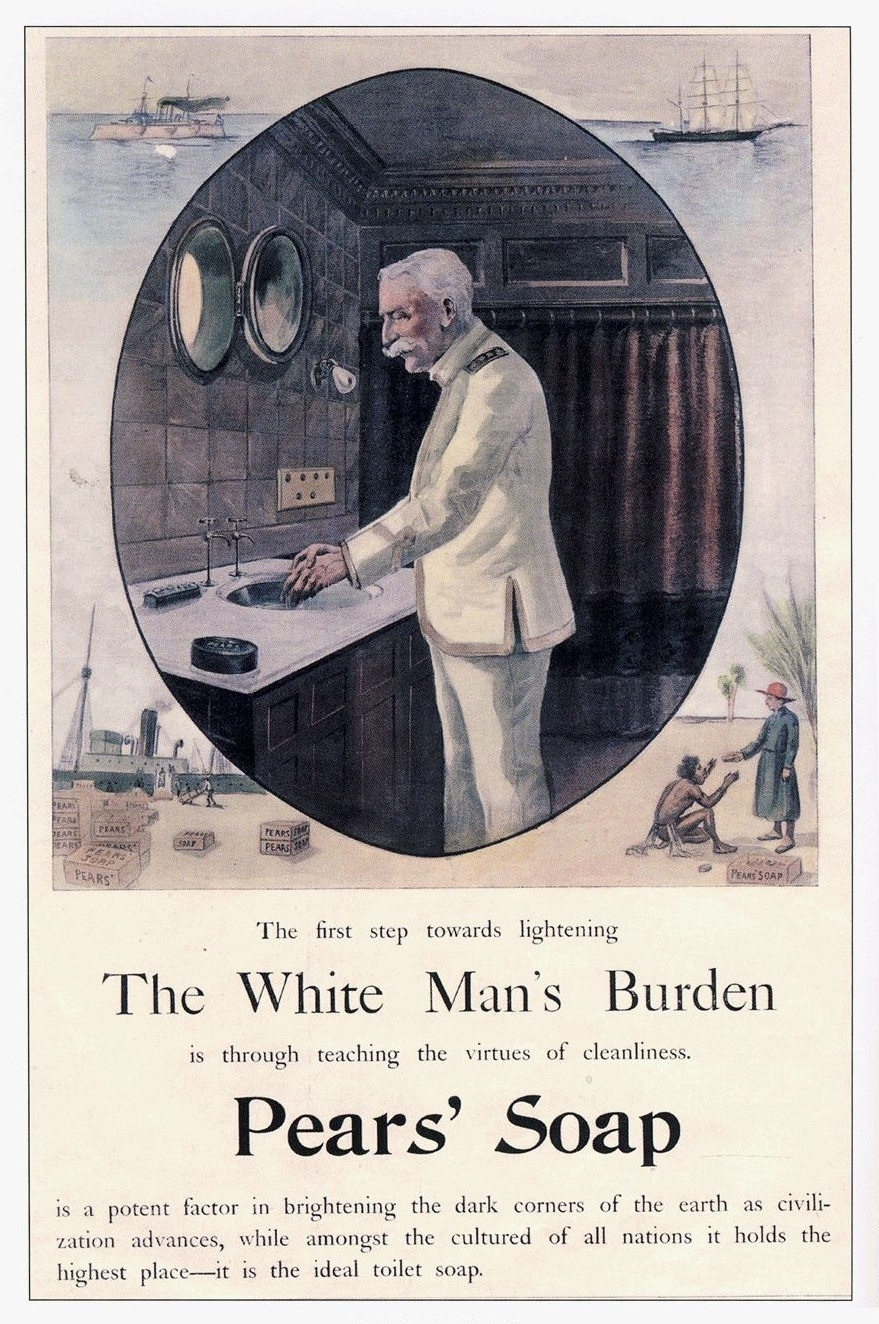7 The White Man’s Burden (1899)
Rudyard Kipling
The writer and poet Rudyard Kipling (1865–1936) was born in Bombay, India, where his father taught architectural sculpture. However, in 1871, his family left him and his siblings in England to complete their education. In visits with his aunt, who was married to the painter Edward Burne-Jones, he became familiar with many members of the Pre-Raphaelite Brotherhood. He returned to India in 1882 to become a subeditor for an Anglo-Indian newspaper. There, he became a celebrated journalist and returned to England in 1888 to write and become established in the London literary scene. He wrote extensively about India, including his Jungle Books and other works for children.
The poem is best known by this title, but it was originally published with this subtitle: “The White Man’s Burden: The United States and The Philippine Islands.” As History Matters explains, “Published in the February, 1899 issue of McClure’s Magazine [an American magazine], the poem coincided with the beginning of the Philippine-American War and U.S. Senate ratification of the treaty that placed Puerto Rico, Guam, Cuba, and the Philippines under American control.” According to Patrick Brantlinger, Kipling originally sent this poem in November 1898 “to his friend Theodore Roosevelt, who had just been elected Governor of New York.” The poem was so successful that a few months later The Cosmopolitan included an advertisement for Pears’ Soap—a British company—that used the poem’s title (see fig. 3).

- This alludes to the biblical narrative of Moses leading the Israelites out of Egypt, where they had been enslaved. As the Israelites wandered through the wilderness toward the place where they were to settle, they faced great hardships, including hunger, disease, and the pursuing Egyptian army. On several occasions, they made complaints to Moses, such as “Is not this the word that we told thee in Egypt, saying, Let us alone, that we may serve the Egyptians? For it had been better for us to serve the Egyptians, than that we should die in the wilderness” (KJV, Exod. 14.12) and “Wherefore is this that thou hast brought us up out of Egypt, to kill us and our children and our cattle with thirst?” (KJV, Exod. 17.3). ↵

